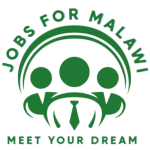Job Description
General
Description of assignment title
Gender Empowerment and Access to Justice Officer
Assignment country
Malawi
Expected start date
25/08/2024
Sustainable Development Goal
5. Gender equality
Volunteer category
National UN Volunteer Specialist
DoA reserved for persons with disabilities
Yes
Accessibility measures in place
Main entranceThe main entrance (or an alternative entrance) of the building is wheelchair accessible (e.g. ramps, handrails, elevators, etc. are available)Office spacesAt least one office/work station, one conference room and one bathroom are wheelchair accessible (please confirm that doors, routes and corridors that lead to these spaces are wide enough for wheelchair use)Office equipmentTables, printers and other office equipment are accessible by a person using a wheelchair.Security & emergencyThe security and emergency protocol take into account persons with disabilities (e.g. evacuation chair is available, etc.)Facilities signpostedAll accessible facilities are marked with symbols or signsTransportation adaptedAccessible transportation to commute to/from the office is available (e.g. public transportation, and/or official vehicle that is accessible for wheelchair users, etc.)Assistive technologyAssistive technology can be provided upon request (e.g. braille note-taker, printers, screen-reader software, etc.)Visual cuesThe emergency warning system has visual cues
Details
Mission and objectives
UNDP works in more than 170 countries and territories, helping to achieve the eradication of poverty and the reduction of inequalities and exclusion. We help countries develop policies, leadership skills, partnering abilities, institutional capabilities and build resilience to sustain development results. UNDP has been present in Malawi since 1964. Working closely with the Government of Malawi, civil society and the private sector, UNDP’ s work aims to contribute to economic growth, sustainable environmental management, and democratic governance and accountability in Malawi. UNDP’s Country Programme Document is closely aligned to the Malawi Vison 2063 and supports Malawi’s aim to achieve the Sustainable Development Goals by 2030 UNDP ‘s programme is designed to address the interlinked issues of poverty, inequality and vulnerability to shocks and is managed within two portfolios: Responsive Institutions and Citizen Engagement which works towards strengthening effective, accountable and inclusive governance that promotes civic engagement, respect for human rights, rule of law, peace and democracy. It also works towards strengthening data generation and analysis. Resilience and Sustainable Growth which focusses on enhancing economic innovation, inclusive business, job creation, and renewable energy access. It also works towards helping Malawi adapt to climate change and build resilience to disasters.
Context
Violence against women and girls (VAWG) is one of the most widespread, persistent and devastating human rights violations globally. It is a major obstacle to the fulfilment of women’s and girls’ human rights and development and therefore a threat to the achievement of the Sustainable Development Goals. One in 3 girls marry before attaining the age of 18 in Malawi, which affects access to education, literacy levels to conduct meaningful economic empowerment activities among others. While there have been efforts to address and eliminate Sexual and Gender Based Violence (SGBV) and Harmful Practices (HP) in the African region, and improved access to, and exercise of, Sexual and Reproductive Health Rights (SRHR), progress has remained slow and uneven, and the approaches have been fragmented. It is increasingly clear that the elimination of all forms of SGBV and HP is intrinsically connected to transformation of gender and socio-cultural norms including those related to women’s sexuality and reproduction; and to improving women’s access to comprehensive sexuality education and sexual and reproductive health information and services. Malawi ranks 145/188 on the Gender Inequality Index, reflecting high levels of inequalities in reproductive health, women’s empowerment and economic activity. Women in Malawi generally fare worse than men on most social and economic indicators including wage equality, political participation, secondary and tertiary education enrolment and literacy. Additionally, violence against women and girls and harmful practices, including early and forced marriages, sexual assaults, harmful sexual initiation, and domestic violence, remain serious issues. Nearly half of Malawi’s girls marry before turning 18 (47%), and the adolescent birth rate is very high, with 30% of babies born to mothers 19 years or younger. Early sexual initiation with limited access to sexual and reproductive health services, lead to early pregnancies, which prevent girls from finishing school, expose them to HIV/AIDS and is the leading cause of mortality among girls 15-19. UNDP is implementing gender and human rights projects in its Governance and Resilience and sustainable Growth Portfolios (RSG) aimed at empowering women, girls and vulnerable groups economically and through promotion of human rights. Under Powering Gender Equality project in RSG Portfolio, UNDP is mainstreaming gender in energy access, energy legal and policy frameworks and supporting women economic empowerment. UNDP also aims at mainstreaming gender across all projects by screening the projects documents, AWPs and Results frameworks for gender inclusion in accordance with the UNDP Gender Equality Seal and UNDP Gender Equality Strategy. UNDP is also implementing a project in Governance Portfolio with Civil Society Organizations to address SGBV, HP and SRHR among other types of violence derailing attainment of development.
Task description
•Support the enhancement of gender equality and women’s economic empowerment within the framework of Governance Pillar III targets and results. •S/he will work in close collaboration with the Gender Specialist, Programme Support Unit and other project teams, Government officials, technical advisors, and experts, implementing partners, donors, beneficiaries and civil society in order to ensure timely and high-quality delivery of Pillar activities relating to the promotion of women’s rights and economic empowerment. •Ensures coordination and implementation of activities relating to gender equality and women’s empowerment •Support initiatives aimed at addressing SGBV through access to justice and promotion of women’s rights. •Support creation of strategic partnerships. •Lead and support research, knowledge building and management. •Any other related tasks as may be required or assigned by the supervisor
Requirements
Required experience
3 years of experience in professional work experience at the national and/or international level in gender mainstreaming and women’s rights or designing, managing and implementing development projects, or other relevant programmes Experience in partnership with NGOs and civil society organizations is an asset, as is experience working in the UN or other international development organization Overall good understanding of the social and political landscape of the country Experience in monitoring and evaluation (using qualitative and quantitative methodologies) Experience in analytical writing and research; writing strategy documents and project/programme reports
Languages
English, Level: Fluent, Required Chichewa, Level: Fluent, Required
Required education level
Bachelor degree or equivalent in Human Rights, Gender and Women’s Studies, International Relations, Sociology, International Law or other social science fields


